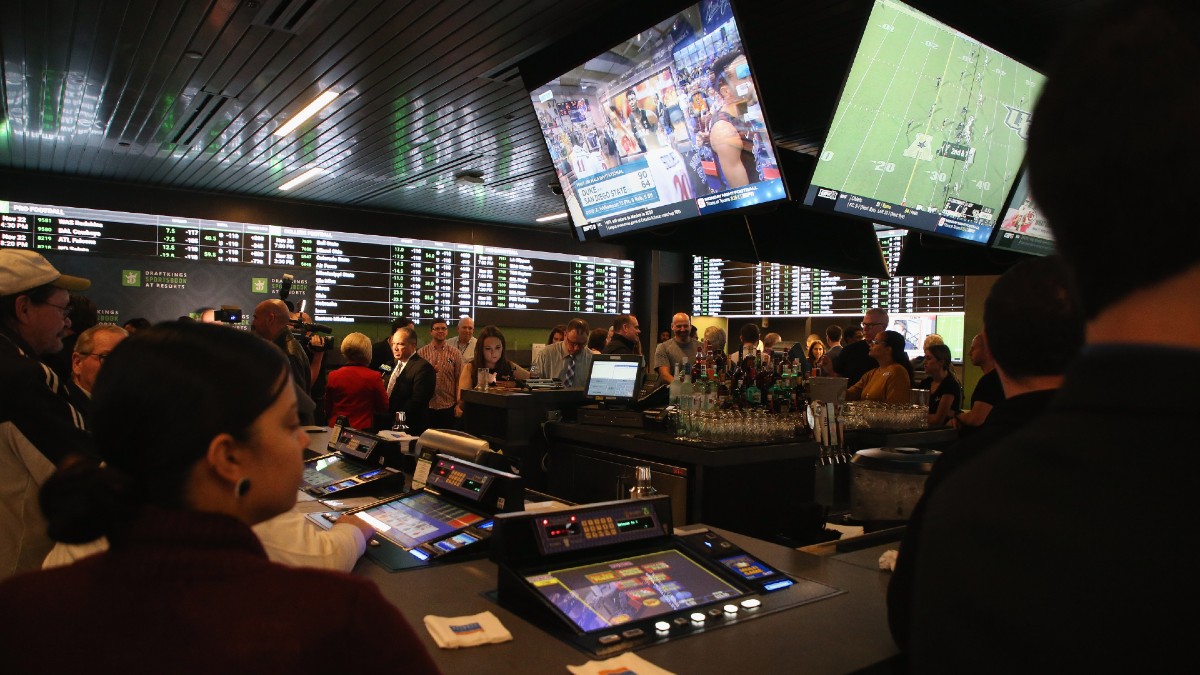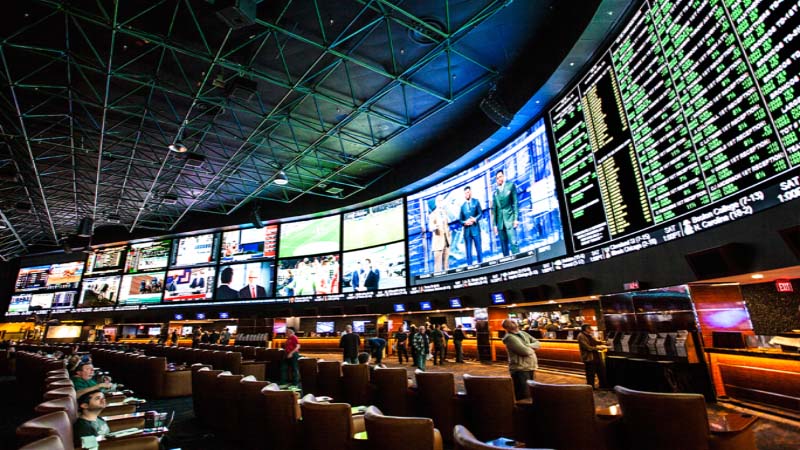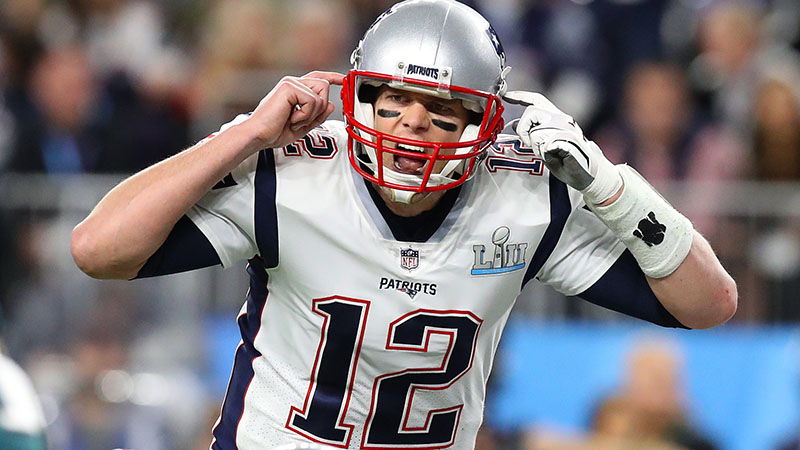Sports betting isn’t easy. If it were, Vegas would go bankrupt and Average Joe bettors would all quit their day jobs and live lavishly as millionaires.
Seasoned bettors know that there will always be ups and downs. The key is staying the course, remaining disciplined and steadily building your bankroll over the course of the long haul.
If you’re new to betting, here are nine common mistakes to avoid:
1. Changing Unit Size
Money management may be the most important discipline needed to be a successful sports bettor. One of the worst things bettors can do is change their unit size based on how well or how poorly they’re doing. When you’re hot, never double down and risk more because you’re overconfident. When you’re cold, never chase and try to win it all back in one fell swoop.
Instead, we encourage most bettors to embrace a flat-betting approach (unless you have a true, quantifiable edge on some bets).
Flat betting means betting the same amount on every game and risking only 1% to 5% of your bankroll per play. A good medium is 3% per play.
For example, if you’re starting with $100, every play is risking $3. If you’re starting with $1,000, every play is risking $30.
A flat-betting approach will save bettors from going bankrupt when they hit an inevitable tough stretch. However, it will also provide bettors with a positive Return on Investment (ROI) when doing well.
2. Overreacting to Recent Trends
If a team looked great the previous game, or if it’s riding a four-game winning streak, novice bettors will automatically want to bet on it, simply because it’s playing well. Meanwhile, if a team just got blown out by 20 points and is on a five-game losing streak, novice bettors will automatically fade them.
But that’s a mistake: Historically, teams coming off a win are overvalued.
For example, say the Patriots just came off a 21-point blowout win. The next game, the oddsmakers might have a true opener of Patriots -7, but since they know the public will take the Pats no matter what, they open New England -7.5 or -8. As a result, you are getting an overpriced and bad number.
On the flip side, teams coming off a loss are historically undervalued. If the Browns are coming off a 21-point loss, the oddsmakers know that the public will want to bet against them. So instead of opening the Browns at a true +10 the next game, they open +10.5 or +11, giving sharp contrarian bettors extra points and inflated line value.
This is why we generally encourage bettors to buy on bad news and sell on good news.
3. Gambler’s Fallacy
Gambler’s Fallacy is the belief that if something happens more often than normal in a period of time, it will happen less frequently in the future. For example, say you walk up to a roulette table and see that a black number has hit the last 10 spins.
Your first thought might be to bet on red because it hasn’t happened in a while and it’s “due.”
But this logic is flawed: Every spin of the roulette wheel is made independent of past spins. The same theory applies to sports, in some ways. If the Cubs lose the first two games of a three-game series to the Padres, it doesn’t mean they’re guaranteed to win the third game.
4. Too Many Bets
Bettors love to bet. But betting just for the sake of having action is never a good thing. Betting 10 or 15 games per night is dangerous. You are taking on massive risk and one bad night can decimate your bankroll.
Instead, bettors should stay disciplined and limit their plays to their most confident games of the day. You can never lose a bet you don’t make.
5. Having Unrealistic Expectations
New bettors have lofty expectations when they first start betting. Everyone wants to get rich quick overnight and win 70% of their bets or hit a 1,000-1 parlay, but that’s just not realistic.
In order to break even when betting on spread sports (considering standard -110 juice), a bettor must win 52.38% of the time.
Anything above 55% is considered to be highly profitable.
6. Buying into Touts
The sports betting industry lacks oversight and regulation, meaning anyone can start a company or website and begin selling picks. Because there is no regulation, handicappers can tout false records and promise unimaginable wealth in order to obtain business.
While there are many legitimate and transparent handicappers in the industry, you’ll also come across and overwhelming number of folks using fake names, flashy cars, women in bikinis and unattainable records to convince new or uneducated bettors to buy their picks.
They will blast you with “Five Star Locks” and “Guaranteed Winners” in the hopes of getting you to sign up. If it looks too good to be true, it probably is.
As a result, we encourage bettors to be wary of handicappers promising low-hanging fruit, or better yet, avoid them entirely.
7. Choosing Your Heart Over Your Head
More often than not, public bettors lose. They bet with gut instinct and are biased toward betting favorites, home teams and overs (because it’s more fun to watch a high-scoring game than root for blocked shots and missed field goals). They’re also biased toward historic franchises, teams with star players and whoever is getting the most media coverage.
By betting against the public, contrarian bettors can capitalize on public bias and get artificially inflated numbers. As an added bonus, they place themselves on the side of the sportsbooks. As we all know, the house always wins.
8. Ignoring Sharp Action
In addition to going contrarian, you want to be on the same side as the professional bettors who win at a high rate and have a long track record of success. One of the easiest ways to spot sharp action is looking for Reverse Line Movement: when the line moves in the opposite direction of the betting percentages.
You can use our PRO Report to easily identify these signals.
For example: say the Warriors are getting 80% of spread bets, yet you see Golden State fall from -10 to -9. Why would the oddsmakers drop the line to give public Warriors bettors a better number? Because sharp professional bettors got down hard on the opponent, causing the line to fall.
In order to succeed long term, bettors need accurate and reliable data. If you don’t know where the public is, where the smart money is and why the line has moved, you’re automatically at a disadvantage.
By covering up the names of the teams, removing all bias, and betting based on line movement, percentages and value, bettors can make the smartest decisions possible and greatly increase their chances of winning.
9. Failing to Shop for the Best Line
Having access to bet at multiple sportsbooks gives you a better chance to have long-term success. Why? Every point and cent matters.
For example, say you want to bet the Miami Heat plus the points. Your book is posting Heat +5, but a second book is posting Heat +5.5 and a third book is posting Heat +6.
It’s obviously to your benefit to get that extra point and bet at the book posting +6. By having multiple accounts at several different books, you just got a full point for free. It may not seem like a big deal, but in the long run it can make a world of difference and turn potential losses into wins.
Or think about it like this. If you’re betting 400 moneylines over the course of the year, you’d just about break even with a record of 210-190 if every line is -110.
But if you can get them at -105, just five cents better per wager, you’d make $1,000.
| Record | Average Price | Profit |
|---|---|---|
| 210-190 | +100 | $2,000 |
| 210-190 | -105 | $1,000 |
| 210-190 | -110 | $90 |
| 210-190 | -115 | -$739 |
You can monitor betting data for every game in real time on our live odds page or in our mobile app (download here).
Where to Bet on Sports: Best Legal Sportsbooks
Now that you have a better understanding some mistakes to avoid, where should you be looking to place your wagers? The short answer: The sportsbook with the most advantageous odds, as discussed above.
Luckily, since the U.S. Supreme Court overturned the federal ban on sports betting in May 2018, multiple states have launched robust mobile betting operations.
To get a complete rundown on where legal betting stands in your state, check out our complete guide here. And check out the best online sportsbooks in New York, Louisiana, Arizona, Illinois, Colorado, New Jersey, Pennsylvania, Tennessee, Indiana, Michigan, Virginia, Iowa, and West Virginia.
If you would like to read more educational resources on the basics of sports betting, we have you covered:
- American Odds. American odds are centered around winning or wagering $100 on a given bet. American Odds
- Point Spreads. Spread betting is a bet on the margin of victory in a game. Point Spreads
- Moneylines. Moneyline betting is when you pick the winner of the game or event. Moneylines
- Totals. A total, also known as an over/under, is a bet on the number of points both teams will combine to score in a game. Totals
- Player Props. A prop bet, short for a proposition, wager that is not directly tied to the final score or outcome. Props Bets
- Futures. Future bets are a bet on an event that will be decided in the future (e.g., end-of-season results). Futures
- Parlay. A parlay is a wager type in which multiple bets are linked together to create a greater payout. It’s treated as one big bet, so every game within the parlay must win for the bet to win. Parlay
If you are planning to bet on sports, be sure to explore the incredible offers with the BetMGM bonus code.


